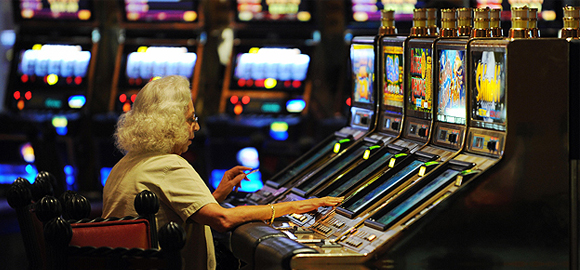No Casino is an Economic Island
In 2007, Macau overtook Las Vegas in revenues. More than 50% of Macau’s economy is based on gambling. The island boasts of 33 casinos that operate under a government franchise. Attention to this little hub of economic prosperity has undoubtedly led to the Chinese cabinet passing the Offshore Islands Development Act, making the gaming industry legal on outer islands such as Matsu. Premier Jiang Yi-huah made things clear when he stated, “In the future, not only will there be a specialized committee that oversees offshore gaming, but other ministry-level bureaus must also cooperate with the government in providing a safe and well-structured industry that will become an important part of Taiwan’s economy.”
Over in the Indian Ocean, Sri Lanka, which legalized gambling in 2010, has benefitted from ‘big-name’ investments in the tiny island’s economy and is hoping to mimic Singapore’s success. Currently, tourism has been on a low with years of civil unrest. The government hopes to increase tourism from the current 1% of GDP to 5% in three years, doubling annual influx to 2.5 million by 2016 from the current record of 1 million.
The Isle of Man has effectively used gambling to tide them through the recent European economic austerity trends. Construction and the retail industry have been stagnating; however the location of some of the world’s largest online gaming players such as PokerStars and RNG Gaming has changed things around. The Isle’s growth in 2012, according to Minister for the department of economic development, John Shimmin, has been 3% on average. The online gaming industry currently accounts for 8% of their GDP.
Cyprus is one of the latest to view gambling as a viable income source by lifting the ban on casinos as part of President Nicos Anastasiades’s 12-point plan to rescue the troubled economy. The island currently faces economic shrinkage to the tune of 13% and tourism makes up 19% of the GDP. Needless to say, the footfalls would be considerably higher with the allure of casinos.
All over, the presence of casinos has proved to be more beneficial to smaller destinations and rural locations are impacted differently from urban ones. Any industry that is capable of bringing in outside money is welcome in an economy. Lotteries bring in smaller earnings than casinos and the more profitable an industry is, the easier it is for governments to gather development funds. With direct tourism coupled with the added income from online gaming, island countries would do well to look at this lucrative industry to leverage their global presence.

 Rakesh Wadhwa. Ever since, I was a school boy, I knew India was on the wrong path. Socialism was just not what we needed to get ahead. Government controlled our travel; government controlled our ability to buy and sell; and government controlled our freedom to move our money. My life has focused on the inherent rights people have. When I was in college, I never understood, what the governments meant by their "socialistic attitude". If people are free to buy, sell and move their capital themselves without any restrictions by state, then the welfare of people is inevitable & hence the countries they live in will become wealthy. The government has no right whatsoever, to point a finger at me or my business. I am not a revolutionary. I just want to light up my cigarette and not get nagged about it. I believe in non-interfering attitude to attain more.
Rakesh Wadhwa. Ever since, I was a school boy, I knew India was on the wrong path. Socialism was just not what we needed to get ahead. Government controlled our travel; government controlled our ability to buy and sell; and government controlled our freedom to move our money. My life has focused on the inherent rights people have. When I was in college, I never understood, what the governments meant by their "socialistic attitude". If people are free to buy, sell and move their capital themselves without any restrictions by state, then the welfare of people is inevitable & hence the countries they live in will become wealthy. The government has no right whatsoever, to point a finger at me or my business. I am not a revolutionary. I just want to light up my cigarette and not get nagged about it. I believe in non-interfering attitude to attain more. 
 The Bastiat Award is a journalism award, given annually by the International Policy Network, London. Bastiat Prize entries are judged on intellectual content, the persuasiveness of the language used and the type of publication in which they appear. Rakesh Wadhwa won the 3rd prize (a cash award of $1,000 and a candlestick), in 2006.
The Bastiat Award is a journalism award, given annually by the International Policy Network, London. Bastiat Prize entries are judged on intellectual content, the persuasiveness of the language used and the type of publication in which they appear. Rakesh Wadhwa won the 3rd prize (a cash award of $1,000 and a candlestick), in 2006.
What the readers are saying…